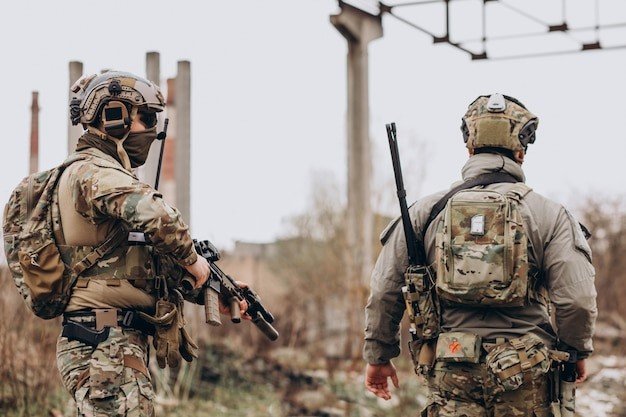Army Regulation 15-6 is one of the most important administrative provisions that govern inquiries and fact-finding within the Army. It lays down policies and practices for undertaking both in-house informal and formal investigations into accidents, errors, misconduct claims, or cases requiring an inquiry.
The nature of investigations carried out in compliance with AR 15-6, in the common language known as “15-6 investigations,” is that they are comprehensive gatherings and make findings about possible occurrences and corrective or disciplinary measures. Understanding AR 15-6 investigation procedures helps determine when they are ordered.
Knowledge of the 15-6 investigation procedure is indispensable for any soldier who is supposed to act as a respondent, witness, or appointed board member. Here is a detailed overview of AR 15-6 investigations and how they work.
What is Army Regulation 15-6?
- Army Regulation 15-6 is the regulation of the Army outlining the policies and procedures for the provision of investigations and boards of officers.
- They cover proceedings that are conducted to inquire into events like accidents, loss or damage to property, death, regulatory breaches, poor unit performances, alleged misconduct, or injustice.
- The purpose of an AR 15-6 investigation is to establish facts and evidence, make findings and recommendations, and implement necessary corrective action.
- The rule specifies obligations and duties for the designating officials who oversee the investigations, members of investigation boards, respondents, and advisors, as well as the key stakeholders in the process.
When are AR 15-6 Investigations Ordered?
A commander orders an AR 15-6 investigation whenever they need to inquire into a matter that is of interest to the U.S. Army. The investigation gives commanders evidence with which to proceed and possibly a recommendation for corrective action. Common causes that trigger an AR 15-6 probe include:
- Charges of misconduct
- Incidents involving damage to governmental property
- Cases of loss of funds
- Any other matters reviewed officially
The commanding officer names the officer responsible for carrying out the investigation. The investigating officer now reports results and proposals to the commander on the basis of the investigation.
The 15-6 Investigation Process
- The appointing authority who orders an AR 15-6 investigation designates a board president, who is usually a senior officer, to lead the proceedings. One or more additional members may be appointed to assist.
- The board develops an investigation plan, including witness interviews, evidence collection, coordination with subject matter experts, and site visits as applicable.
- Respondents – those under investigation – are formally notified in writing that they are subjects of the inquiry and are advised of their rights.
- Respondents and witnesses provide sworn written statements and testimony during interviews conducted under oath.
- After collecting all applicable evidence, the board reviews the case file and deliberates findings of fact, opinions, and recommendations based strictly on evidence.
- A comprehensive written report is generated, encompassing the research methodology, supporting documentation, timeline of occurrences, conclusions, viewpoints, and suggestions.
- The appointing authority reviews the report and supporting evidence and determines if any further actions, corrections, or disciplinary measures are warranted per the investigation’s findings.

Rights of Respondents in 15-6 Investigations
Soldiers who are subjected to AR 15-6 investigations have important rights, including:
- Right to be informed of the allegations and nature of the investigation.
- Right to review all evidence and the complete final report, subject to redactions.
- Right against self-incrimination in accordance with Article 31 of the UCMJ. May refuse to answer questions.
- Right to consult legal counsel and have them present during interviews.
- Right to call relevant witnesses and cross-examine other witnesses.
- Right to present evidence, provide testimony, and make statements on their behalf.
- Right to make a written rebuttal to any portion of the report.
Challenging 15-6 Investigation Results
Respondents who believe an investigation violated regulations or their rights have limited recourse options.
- They may submit a written rebuttal of the report prior to the appointing authority acting. This demands further research.
- They can raise objections about irregularities to the appointing authority and their office, the Inspector General. Meanwhile, 15-6 proceedings cannot be formally appealed.
- Adverse actions that come about as a result of negligent or mistaken investigations may be confronted through other means, i.e., boards or courts.
Conclusion
In summary, AR 15-6 sets out basic procedures to be followed by administrative investigations ordered to ascertain facts and determine if the Army should institute corrective action or discipline. Being subjected to a 15–6 probe can hurt a soldier’s career, and thus, being knowledgeable about the process and the rights attached is key. An experienced military law attorney consultation for any 15-6 respondent is highly recommended, considering the gravity of the consequences.



